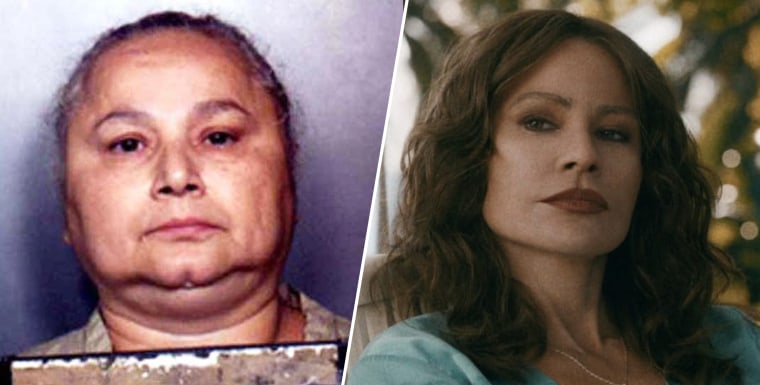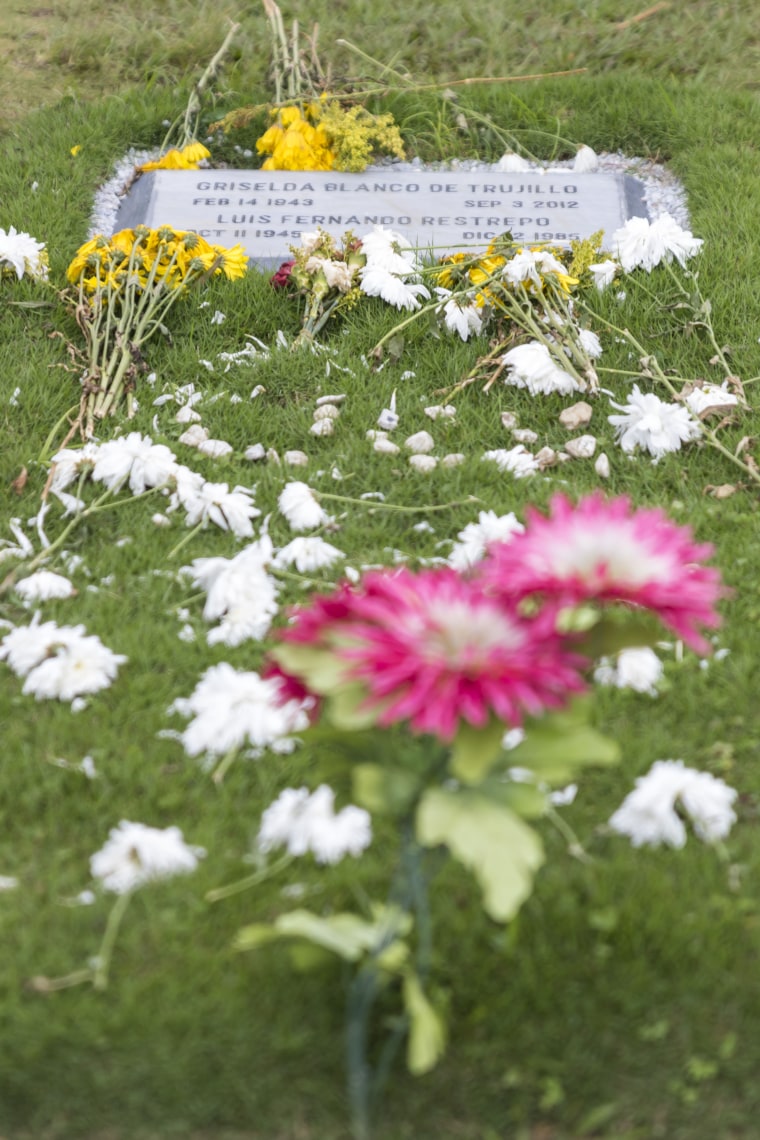Warning: This post contains spoilers for "Griselda."
The final moments of Sofía Vergara’s Netflix series “Griselda“ reveal the Colombian drug dealer’s fate.
The Netflix miniseries, which the streamer called a “fictionalized dramatization” in press notes, follows Griselda Blanco after her move to Miami with her three sons. She later has another son. Her presence in the drug scene grows throughout the ‘70s and ‘80s as her four sons grow older, until she earns the nickname the “Godmother of Cocaine.”
Vergara told the New York Times she was drawn to the character for that contrast: “This innocuous-looking woman was raising four kids while building this insane, brutal empire.”
Executive producer and co-showrunner Doug Miro said, in Netflix press notes, that the show hewed to the facts of her life — as much as they had them.

“It’s hard with Griselda, as it is with a lot of these narcos — not as much was written about them as Pablo (Escobar),” he said, comparing Griselda Blanco to Pablo Escobar, the focus of the Netflix show “Narcos” Seasons One and Two.
What was more important, Miro said, was “emotional truth.”
“When I say ‘truth,’ what we want is the essence of who the characters are emotionally, what their experience was, what it’s like to put on their shoes. To do that, you need to go past what’s written, past what’s published,” he said.
Nelson Andreu, a former West Miami police chief who spent ten years of his life building a case against Blanco, said he doubts the Netflix show can capture her true "ruthlessness."
Get a weekly recap of the latest San Francisco Bay Area housing news. >Sign up for NBC Bay Area’s Housing Deconstructed newsletter.
“They’re not going to portray her as she really was. They never do in movies. They make what they think is going to sell and what people are going to like. Very close to the truth, but not the truth,” he told TODAY.com in a separate interview.
“Griselda“ concludes with a single line about its central character’s fate. That said, here’s what we know about what happened to Blanco.
Who was Griselda Blanco?
Blanco is a former Colombian drug lord who was one of the first to engage in large-scale smuggling of cocaine into the United States — specifically, Miami — from Colombia.
Andreu described her as being a person with "no scruples."
"She would kill you if she owed you money and didn’t want to pay you. And if you owed money and couldn’t pay her, she would kill you as well. It was a win-win for her and a lose-lose for everyone else,” he summarizes.
Her attitude came down to her position as the only woman in a man's business, Andreu said.
“She had to be the way she was because she was the only woman in a man’s business,” Andreu said. “There were no other women in that high of a capacity dealing cocaine at the time.”
Blanco was indicted by the United States district court for the southern district of New York for conspiring to manufacture, import into the United States, and distribute cocaine, and finally was arrested in 1985. She was sentenced to 15 years in prison.
When the state of Florida was building murder cases against her, Jorge Ayala — Blanco’s former hitman — was found having phone sex with secretaries from the Miami-Dade State Attorney’s Office, though one of the three secretaries fired was cleared of wrongdoing and rehired, per the Orlando Sentinel.
Jorge Ayala pleaded guilty in 1993 to three murders and was sentenced to life in prison, per the Miami Herald. He was denied parole in 2012, per the Miami Herald. Then, in 2013, the Miami Herald reported that a judge “denied his bid to explore claims that Miami-Dade prosecutors, back in 1993, agreed in a ‘handshake deal’ to help him seek parole after 25 years in prison.” Ayala’s lawyer Jim Lewis said, “He doesn’t deserve to die in prison. He’s atoned for what he’s had done.”
Andreu told CBS News in 2012 that the phone sex scandal was a turning point in the case against Blanco: “It went from being a good case, again hinging on Jorge Ayala creditability, to nothing.”
Blanco cut a plea deal in 1998 after pleading guilty to second degree murder. She was sentenced to serve three concurrent 20-year sentences.
She was released from prison and deported to Colombia in 2004, where she lived another eight years.
She was featured in the documentaries “Cocaine Cowboys” (2006), “Cocaine Cowboys 2: Hustlin’ with the Godmother” (2008) and played by Catherine Zeta-Jones in the 2017 Lifetime movie “Cocaine Godmother.”
How did Griselda Blanco die?
Blanco was killed in Medellín, Colombia, in September 2012. Colombian national police confirmed her death according to the Miami Herald, NBC News reported at the time. She was 69 years old.
According to The Guardian, Blanco was executed in the same style that she was credited with.
“The manner of Griselda Blanco’s death on Monday reflected the brutality for which she became notorious — gunned down in the street by a killer on a motorcycle,” the article reads.
In an interview with the outlet at the time, Bruce Bagley, then head of the University of Miami’s Department of International Studies, described her death as “some kind of poetic justice.”
“She might have retired to Colombia and wasn’t anything like the kind of player she was in her early days, but she had lingering enemies almost everywhere you look,” he said at the time.
What happened to her sons?
Blanco had four sons, as "Griselda" shows. While in prison, Griselda (in the show) learns that her three older sons were killed in three different coordinated hits.
Andreu confirmed to TODAY.com that her three older sons were killed. Osvaldo Trujillo-Blanco, whose death outside a Colombia nightclub in 1992 was reported by the U.S. Department of Justice Office of the Inspector General.
Michael Corleone Blanco, Griselda Blanco’s fourth and youngest child, is still alive. He calls himself, per the website of his lifestyle brand, the “proud son of Griselda Blanco.”
Where is Griselda Blanco buried?
According to the Spanish daily newspaper El País, Blanco was buried in the Jardines de Montesacro cemetery. Colombian drug lord Pablo Escobar was also buried at the same cemetery.

This story first appeared on TODAY.com. More from TODAY:



